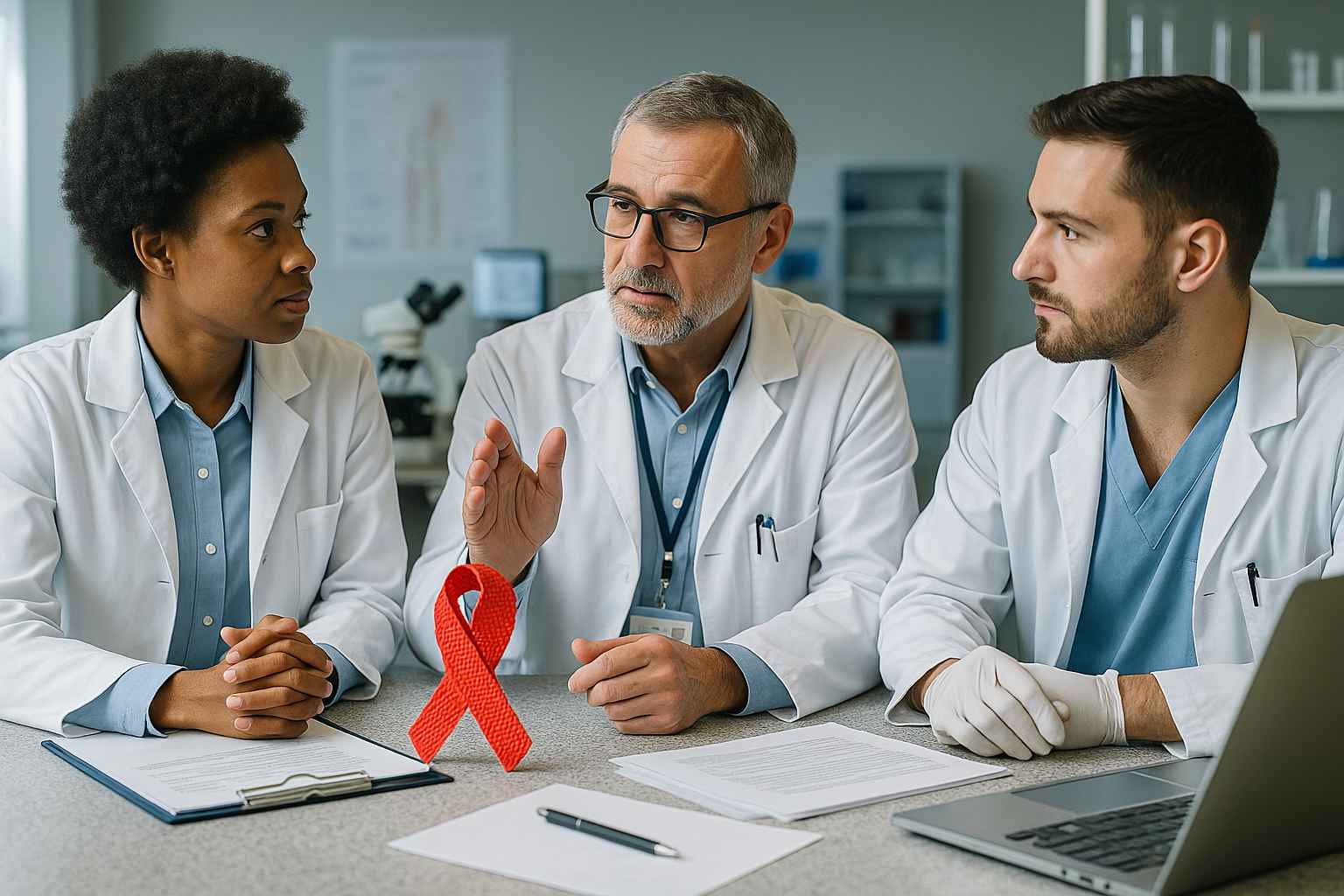
Introduction
In a world of rapidly evolving science and medicine, staying current with HIV news and research is not just helpful—it’s essential. From groundbreaking treatments to vaccine developments, the field of HIV/AIDS continues to move forward at a remarkable pace. Yet, for many patients, caregivers, and advocates, accessing reliable, up-to-date information can still be a challenge. That’s where Aids.org steps in, bridging the gap between complex science and community understanding.
What’s happening in the world of HIV research today? And how can it impact your health decisions? This article explores key topics shaping HIV care in 2025, including innovations in therapy, public health strategies, and how to stay informed through trusted sources.
Table of Contents
- The Current State of HIV in 2025
- Promising Advances in HIV Treatment
- Innovations in Prevention and Vaccination
- How Aids.org Supports HIV Awareness and Education
- Conclusion and Key Takeaways
- FAQs
The Current State of HIV in 2025
While HIV remains a significant global health issue, progress has been substantial. According to UNAIDS, over 29 million people globally now have access to antiretroviral therapy (ART), with more individuals living longer, healthier lives than ever before. Yet challenges persist, especially in terms of access, stigma, and disparities in care.
Moreover, the rise of HIV comorbidities—including cardiovascular disease, diabetes, and mental health concerns—has shifted clinical priorities. As a result, HIV news and research has begun to focus not just on viral suppression, but also on holistic long-term wellness.
Importantly, certain regions continue to see increased infection rates among vulnerable populations, such as men who have sex with men (MSM), transgender individuals, and young people of color. Public health initiatives are increasingly being tailored to address these disparities.
Promising Advances in HIV Treatment
The past few years have seen exciting breakthroughs in HIV treatment. Long-acting injectables, such as cabotegravir and rilpivirine, now offer monthly or bi-monthly dosing options—replacing daily pills for many patients. This innovation not only improves adherence but also reduces stigma associated with visible medication routines.
Another headline in HIV news and research is the development of broadly neutralizing antibodies (bNAbs). These antibodies target multiple strains of HIV and may one day form the basis for both treatment and prevention, either as standalone therapies or in combination with ART.
Additionally, researchers are investigating the concept of a functional cure. While still experimental, these strategies aim to suppress the virus without continuous treatment—offering new hope for remission.
Innovations in Prevention and Vaccination
The fight against HIV begins with prevention. Pre-exposure prophylaxis (PrEP) has revolutionized HIV prevention, especially among high-risk populations. Now, next-generation PrEP options are in clinical trials, including long-acting injections and implants that provide protection for several months at a time.
Research into an HIV vaccine continues as well. In early 2025, the MOSAICO trial—the largest of its kind—announced updated findings. Though earlier iterations of vaccine candidates fell short, scientists are hopeful that mRNA technology (the same used in COVID-19 vaccines) could offer a breakthrough.
Public health leaders are also using mobile apps and artificial intelligence to deliver targeted interventions, track medication adherence, and provide on-demand support. These digital tools enhance engagement and empower users to take control of their sexual health.
How Aids.org Supports HIV Awareness and Education
With so much information circulating, how can patients and providers separate fact from fiction? That’s where Aids.org becomes invaluable. As a trusted platform for HIV news and research, the site offers evidence-based content on topics ranging from diagnosis and treatment to lifestyle support and policy updates.
Visitors to Aids.org can access:
- Regularly updated news articles covering global and U.S.-based HIV developments
- Summaries of recent clinical trials and medical journal highlights
- Patient-focused resources, including support groups and FAQs
- Educational materials for caregivers and clinicians
- Forum access for sharing experiences and connecting with others
By maintaining a balance of scientific credibility and accessibility, Aids.org serves as a cornerstone in the online HIV community.
Conclusion
From cutting-edge therapies to personalized prevention strategies, HIV news and research continues to evolve. Staying informed isn’t just about curiosity—it’s a key step in making empowered health decisions. Through platforms like Aids.org, patients, clinicians, and advocates have access to the tools they need to stay ahead of the curve.
The future of HIV care is collaborative, innovative, and more hopeful than ever. Whether you’re living with HIV, caring for someone who is, or simply want to be a better-informed ally, this is the time to stay connected to the latest research.
FAQs
What are the latest treatments in HIV therapy?
New options include long-acting injectables like cabotegravir and rilpivirine, along with experimental therapies using broadly neutralizing antibodies.
Is there a cure for HIV?
While no definitive cure exists yet, researchers are working on functional cures that would allow patients to stop treatment while maintaining viral suppression.
How effective is PrEP in preventing HIV?
When taken as prescribed, PrEP reduces the risk of HIV transmission by up to 99%. Newer options include long-acting injections and implants.
Where can I find trustworthy HIV news?
Aids.org provides verified, up-to-date articles on HIV treatments, prevention, community resources, and research developments.
Are vaccines for HIV close to being approved?
While no HIV vaccine has been approved yet, ongoing trials using mRNA technology and other innovations are showing promise.
Disclaimer
“This content is not medical advice. For any health issues, always consult a healthcare professional. In an emergency, call 911 or your local emergency services.”



